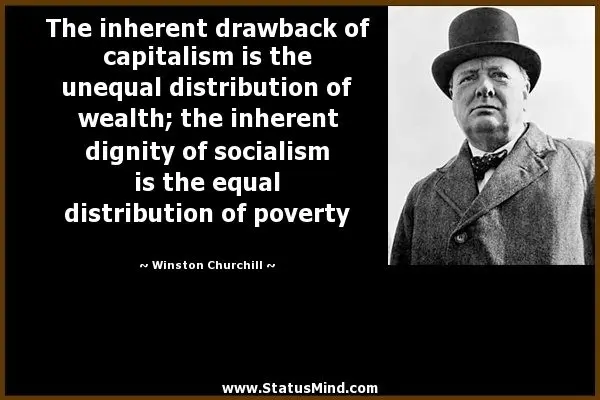Once upon a time in my childhood, when I still knew nothing about politics or politicians, Winston Churchill was a hero for me without fear or reproach. Since then I have learned a lot about him and about politics. But an amazing thing: the desire to reproach him for something did not arise.
In 1941, speaking to the students of one of the private schools, Churchill outlined his credo: “Never give in to anyone …” At the same time, “yielding”, “giving in” and “apologizing” were synonymous for him. He never once apologized for speaking remarkably flatteringly about Mussolini in the 1930s, and a little later, less flatteringly, but still hopefully, about Hitler. During the war, he never once apologized to Stalin for calling the Bolsheviks “wild, ferocious baboons” who “jump among the corpses of their countless victims.” After the war, even outraged by the “Iron Curtain” in Europe, he did not apologize, for example, to Poland and Lithuania for the fact that before that he had publicly and passionately defended Stalin’s interests in regard to the Polish and Lithuanian territories.
It’s about big. As for the petty, he, of course, did not even think of apologizing to Franklin D. Roosevelt when he caught his eye in the White House in what his mother gave birth: Churchill was used to walking around his own house naked. “I have nothing to hide from the President of the United States,” was all he remarked as he walked into his room. And to the neighbor in the compartment, who discovered that his fly was unbuttoned (Churchill did not wear underwear), and exclaimed: “Sir, shame on you, everything sticks out there!” – he calmly replied: “Madame, do not flatter yourself, nothing sticks out there, you can see it.” And, of course, he did not apologize to any of his political enemies, for whom he never tried to hide his squeamish contempt. He is said to have allowed Pearl Harbor to happen in order to drag the US into the war. And before that, he changed the party three times, each time receiving the maximum benefits from the transition. Any politician, even if he did such an act, would be doomed to eternal contempt. This did not happen with Churchill. He evoked a variety of emotions, from admiration to hatred. But they all fade into the background before the main thing – respect. Perhaps because promiscuity in means combined with the greatness of the goal. And also because, in addition to political opportunism, he had a natural ability for heroism and nobility. He escaped from Boer captivity in 1899, and in 1915, having lost his post as First Lord of the Admiralty, he went to fight on the French front. Finally, resigning in 1945, he flatly refused the title of Duke of London, saying that the one who lost the election was not worthy of the award.
Be that as it may, when you think of Churchill, what comes to mind is not an overweight slob, a snob and a cigar and whiskey lover, but the Prime Minister of warring Britain, who said to Parliament and the nation: “All I can offer you is blood , hard work, tears and sweat. As we know, his proposal was accepted…
His view of the world
“Never give in to anyone – never in anything: neither in great things, nor in small things, nor in important things, nor in trifles – and never give in to anyone.”
“If Hitler invaded hell, I would at least speak favorably of Satan in the House of Commons.”
“There is hardly anything that can compare with the joyous excitement that you experience when you are shot at, but not hit.”
“Reality is an illusion caused by a lack of alcohol.”
His dates
- November 30, 1874 was born on the estate of the Dukes of Marlborough.
- 1900 Elected to Parliament from the Conservative Party, after a few years he switched to the Liberal Party, and in 1923 he again became a Conservative. “Anyone can be a rat. But it takes a little ingenuity to get back on.”
- 1905 First cabinet post as Under Secretary of State for the Colonies.
- 1908 Marriage to Clementina Hozier.
- 1940 Becomes prime minister and leads the country to victory in the war, after which he is defeated in the elections.
- 1951 Return to the post of prime minister; leaves four years later due to illness.
- 1953 Nobel Prize in Literature. Becomes a Knight of the Order of the Garter.
- On January 24, 1965, Sir Winston Churchill died at his home in London.
“We will fight…”
“Over the past 25 years, no one has been a more consistent opponent of communism than me. I won’t take back a single word I said about him. But all this pales before the spectacle now unfolding. The past with its crimes, follies and tragedies disappears. I see Russian soldiers standing on the threshold of their native land, guarding the fields that their fathers have cultivated since time immemorial. I see them guarding their homes, where their mothers and wives pray – yes, for there are times when everyone prays … I see tens of thousands of Russian villages where livelihoods are pulled from the ground with such difficulty, but where there are primordial human joys, where girls laugh and children play. I see how the vile Nazi war machine is approaching all this, with its dapper, rattling Prussian officers, with its skillful agents, who have just pacified and tied hand and foot a dozen countries. <...> We have only one single unchanging goal. We are determined to destroy Hitler and all traces of the Nazi regime. Nothing can turn us away from it, nothing. We will fight him on land, we will fight him at sea, we will fight him in the air.
From a radio speech on June 22, 1941. W. Churchill “The Second World War” (Alpina non-fiction, 2010).










